As a follow on from our Zombie Maths activity yesterday, we played class Battleship in Maths today. We got the idea from William Chamberlain who commented on our post and shared his class blog post about his class learning the same type of Maths. As a nod to this international sharing, we decided to give his lesson a go – with a few changes.
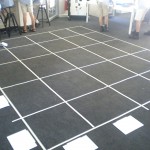
Our Battlefield
First, we marked out a 5×5 grid on the carpet and labelled the axis.
We started the activity with the students laying out their ‘ships’ on their own 5×5 grids. We had a 4, 3 and a 2 square ship to lay out on the grid anyway we liked. Then we placed our ‘soldiers’ on the grid squares one by one and the students marked them off, much like a game of Bingo. We decided to award both the first and the last place getters, as the ‘winners’ would be the first to have their ships sink, and the ‘losers’ would be the survivors!
After this first game, we found that most of the class were finishing at the same time. Putting a gamification hat on, I asked the students, how we could change the game to alter the way the results played out. Ideas included fewer players, more squares and a different number of ships.
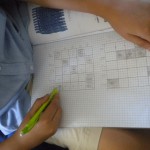
It’s a hit!
What impressed me the most was an idea that suggested the outcome be altered. There were 25 squares, corresponding with 25 students in the class. The suggestion was to give everybody a square, then there would be only one winner. It was proposed if the fairness of the game could be altered by
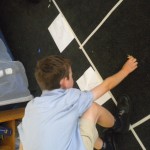
Placing the soldiers on the grid
letting players choose their own square or whether the players should announce their square to other players. I was noticing that the game of Battleship had evolved into the design of a fair chance game. This impressed me because it showed the kind nature of my students in wanting the game to give equality to all participants.
The irony of this in a competitive context was not lost on some of my more ‘enthusiastic’ students who
‘complained’ that this wasn’t really a game anymore, as there was no strategy, only pure luck. I pounced on this as an opportunity to have the class define in their own way ‘what is it that makes a game?’ and how we could change the rules and parameters of our ‘Battleship Activity’ to create the best game we could.
I’m looking forward to seeing what they come up with!
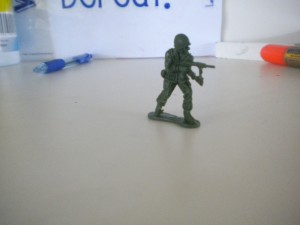
One of our brave soldiers
Note: We have updated the rules here.




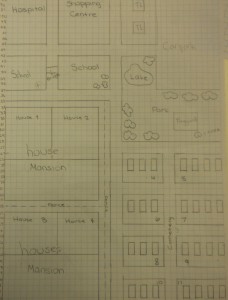
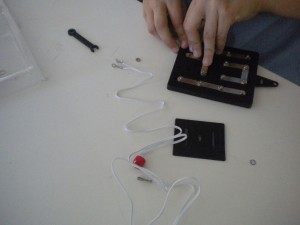
 paperclips and wood. Everyone managed to make a completed circuit work. Here are some photos of our science lesson.
paperclips and wood. Everyone managed to make a completed circuit work. Here are some photos of our science lesson.
